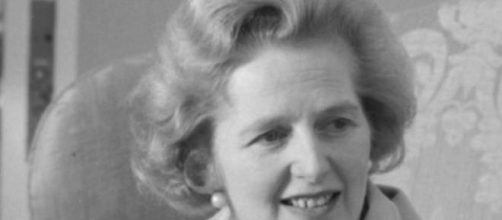While politicians sharpen their political skills and check all polls and reviews, it is the right time to remember Margaret Thatcher for being a totally different kind of politician. A woman that, in the beginning of her political career, showed no special promise and could have been disregarded as just another parliament member turned out to be a remarkable leader, that whether you liked her or not, you could not never have ignored her.
In recent years it looks as the world is going to a global crisis that is way beyond financial or political; we are living in an age of leadership failure.
As many polls lately show, the confidence people actually feel that their leaders will take the necessary steps to overcome the turbulent times we are all experiencing is very low to say the least.
In times like this, we can only look back and reflect on historical figures that came to power at troubled times and brought their countries to safe shores, not by doing what was the popular thing nor the easiest to do but for doing what was most necessary, even if that meant many times stepping on many toes and make whole sectors unhappy. The sad thing about this phenomenon is that many such leaders, because the desperate measures they took, people resented them as result, as if it was a Pavlovian reflect, and were unable to see the necessity of their steps.
Like Winston Churchill that after leading the UK through one of its darkest hours was thanked by removing him from power at the first elections held after the war.
Margaret Thatcher times were also difficult; she began her term at a time of significant recession and high unemployment rates. There are no easy solutions to such problems and whatever measures you take, you are bound to make many voters uncomfortable, but the resilience is the true trademark of a leader and it is also what sets it apart from the common politician. The "Poll tax" did not bring her more popularity and her views on the European Community enraged many on the parliament. The Falkland war however, something that today might be unpopular as most wars are, brought her lots of support and respect, some may say it was the main reason for her re-election in 83.
She maintained an economic policy of privatisation of state owned companies where possible, opening the economy to the powers of the free market and reduced significantly the influence of the trade unions. Today, many countries adopted these policies and are those are considered not only beneficiary but natural part of a healthy economy.
She died 2 years ago and she surely left her mark on contemporary history, a leader that whether you agree or not with her, she was worthy of your respect and made you proud to call her your PM. That is what a country mostly needs, times are hard and some important decisions should be taken. May the natural intelligence of the masses help all find the wisdom to select correctly.

